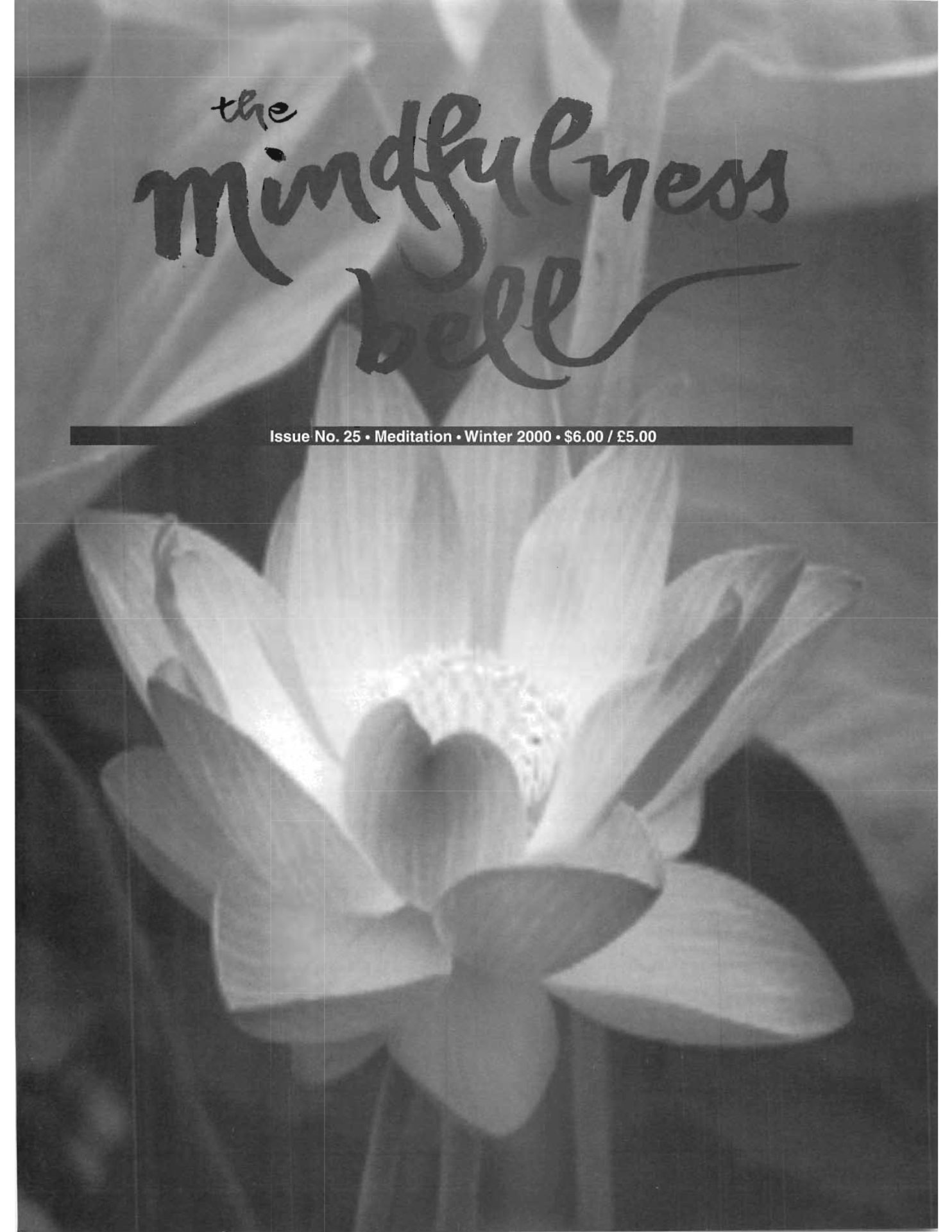After you finish reading Thich Nhat Hanh’s Dharma talk, if you read nothing else in this issue, please read about the flooding in Vietnam (pages 7-10). People there desperately need our help, and it takes very little to do a lot. Vietnam is one of the poorest countries in the world, with an average per capita annual income of approximately $300 U.S. The November flooding devastated eight provinces in central Vietnam—the poorest part of this poor country and the area where Thay’s root temple is located.
After you finish reading Thich Nhat Hanh's Dharma talk, if you read nothing else in this issue, please read about the flooding in Vietnam (pages 7-10). People there desperately need our help, and it takes very little to do a lot. Vietnam is one of the poorest countries in the world, with an average per capita annual income of approximately $300 U.S. The November flooding devastated eight provinces in central Vietnam—the poorest part of this poor country and the area where Thay's root temple is located. Sister Chan Khong and Sister Minh Tanh tell us of the monks' efforts to bring relief to people, and of Plum Village's donations to help. But the need is deep and available resources are inadequate. As this issue heads to press in early December, new flooding has begun, washing seeds away from the just planted fields and bringing more suffering. Imagine losing everything and then having no way to get food or fresh water, medical supplies, or even a blanket for your children. Many of us are blessed with material things, and with a governmental infrastructure capable of responding to natural disasters. This fall, three hurricanes pummeled my home state of North Carolina, flooding the entire eastern half of the state twice. Because the rain fell on the headwaters of several rivers, the waters continued to rise for over two weeks. Many people here lost everything they owned. But in this nation of plenty, helicopters quickly airlifted food, fresh water, blankets, and medicine to towns surrounded by waters. Within a short time, people on rooftops were rescued, hospital patients were moved to safety, and temporary housing was set up. Vietnam's resources, both public and private, are far less and cannot meet the need there. Please let us show our gratitude for the benefits of our material wealth by sharing what we can with our brothers and sisters who are in such desperate need.
I do hope that you read and enjoy the rest of The Mindfulness Bell, and that our efforts in bringing it to you enrich and nourish your practice. This issue contains important updates from Thich Nhat Hanh about unfolding events. It also includes an account of the trip to China last summer, experiences and teachings in the practice of meditation, reports from some retreats, and the entire Sangha Directory.
As you can see, we are also experimenting with The Mindfulness Bell design, as we implement Thay's vision of a magazine that serves the needs and shares the experiences of the worldwide mindfulness Sangha. We welcome your thoughts on the shape we are taking. And please remember we always welcome submissions about experience in the practice, photographs, art, and issue theme suggestions.
A lotus for you, Leslie

